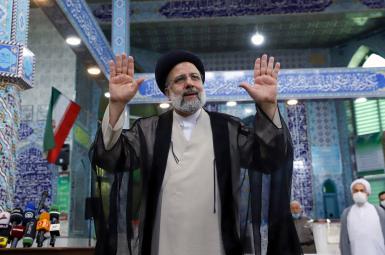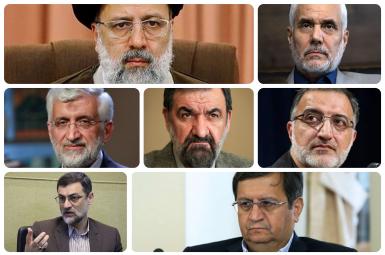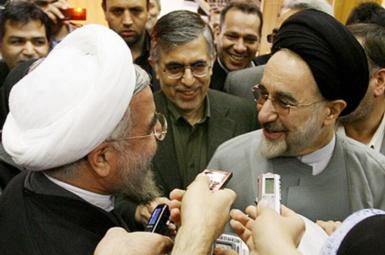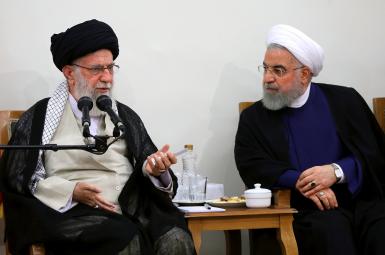
Is Election Turnout Important For Iran’s Authoritarian Camp?
Registration of candidates to elect Iran's 13th president on June 18 closed on Saturday. Those cleared to stand will be announced by the watchdog the Guardian Council on May 27 and 27. Some analysts claim the candidates are unlikely to mobilize disillusioned voters. Few expect the council to clear former president Mahmoud Ahmadinejad or the reformist Mostafa Tajzadeh, who might boost public interest in the election.
A recent poll conducted for Iran International TV by Stasis, a research analytics and consulting firm based in the United States and focusing on Iran, indicates very little interest in the poll. Only 27 percent of the sample population interviewed by phone said they would vote. A further 18 percent were undecided, while 55 per cent said they had no plans to vote.
The lowest ever turnout in Iran's presidential elections in the past four decades was 51 percent in 1993 when Akbar Hashemi Rafsanjani his second term in office. The highest turnout, in 2009, saw Mahmoud Ahmadinejad's win a second term with a disputed 62 percent of the vote. In the past two presidential elections turnout has been above 70 percent.
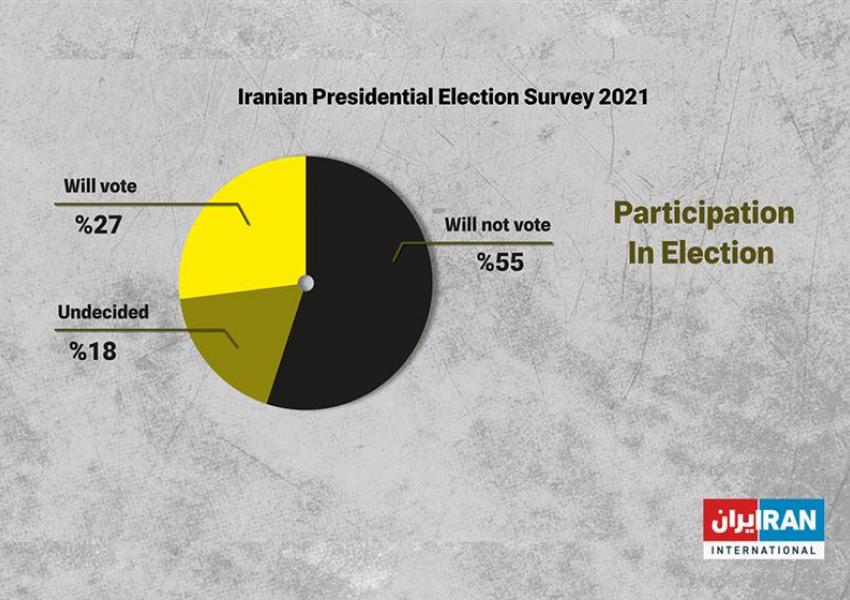
Among those who said they would vote, the poll found the leading candidates to be Chief Justice Ebrahim Raeesi and Ahmadinejad, with 29.6 and 29.4 percent respectively. The next in line, with 4.1 percent of the vote, was Saeed Mohammad with 4.1 percent.
"It is not very likely that there will be a reformism-principlism dichotomy," Munich-based political analyst Ahmad Pourmandi said in an interview with Iran International TV on May 14. "The real competition will be inside the authoritarian camp, between the generals and clerics," referring to the registration of several candidates including Mohammad who hail from the Revolutionary Guards.
Turnout in the upcoming elections is widely expected to be lower than previous elections due to the Covid-19 pandemic and voters' disillusionment after three years of economic recession.
Many believe that hardliners are not too worried about a lower turnout in the June election. but at the same time low turnout in elections is seen as a lack of support for the country’s leadership. Supreme Leader Ali Khamenei has always cited high turnout as proof of the Islamic Republic’s legitimacy. Iran International analyst Morteza Kazemian says “the regime” is content with a 40 percent turnout if a "revolutionary and pious candidate" who meets Khamenei's expectations and implements the leader's projects wins.
"Voting is my right and yours, same as not voting is my right and yours,” Tajzadeh said in his statement to announce his candidacy on May 14. “Voting is only acceptable when the election is meaningful and expecting a high turnout is only logical when there is competition.”
Leading Sunni cleric Abdolhamid Esmail-Zehi, who has generally supported reformist or centrist candidates in presidential elections given their expressed support for rights for ethnic and religious minorities, voiced similar concerns Thursday. In the past, Esmail-Zehi has encouraged Sunnis, who are between 5 and 10 percent of the population, to vote.

